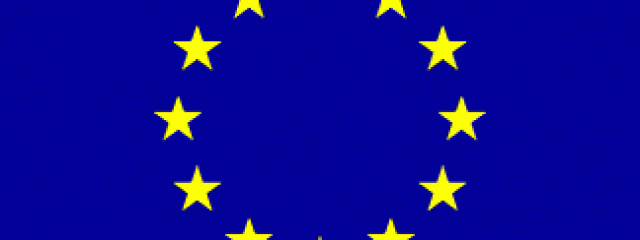On the 9th May in 1950 French Foreign Office Robert Schumann got the idea of Europe integration. It was the beginning of the Union European. The first members of this Union were France, Belgium, Italy, Luxembourg, Germany and the Netherlands.
Many years have passed since 1950. More and more members have been accepted to the European Union. 10 years have passed since Lithuania has joined this Union. Do we feel any difference? Are the countries which have joined the EU feel as a part of it? If it’s so then why we celebrate the European Day so poorly?
On 5th May in 2004 Lithuania finally became a member of the European Union. Since then our economy has grown up, many people have had an opportunity to learn a foreign language and to travel abroad having a chance to find work and staying there. A small country by the Baltic Sea Lithuania have been visited by many tourists from all Europe: some only looked through our old town while some settled down there. It is great because all people can broaden their horizon.
Although there are no walls between European countries and everyone can travel freely people lose their individuality: people are too much interested in other cultures but they forget their own history, mores, and folk songs. We frequently hear Lithuanians using English words in their language.
Even though being in Europe has both pluses and minuses, we are still a part of a big multinational and multicultural family. So why are we paying so little attention to things that may unite our family? Why there is so little tolerance? Many Lithuanians have left for abroad searching for a job. They have many problems in their ways but the main problem is not the language barrier or the home-land nostalgia. People feel bad rated as specialists.
Why do we pay no attention to common celebrations and festivals? We could at least mention European Day. Now some countries celebrate this day but some do not. In Lithuania some cities mentioned this day and some have forgotten about it. So why are we speaking about solid Europe while all the nations are separated? They cannot even make a decision if they want to celebrate this day or not. But is it really hard to do something on this day? Perhaps not for the grown-ups but for the teenagers because they are the future of Europe and later on they will be responsible for saving peace in Europe.
European Union: do we have anything in common?
Social Share
2 Comments
Leave a Reply Cancel reply
Search
Join us on Facebook
Categories
- Art (11)
- Artificial Intelligence (6)
- Culture (97)
- Ecology (32)
- Economics (13)
- Education (114)
- Employability (12)
- European Solidarity Corps (3)
- General (76)
- Health (12)
- Heritage (3)
- ICT (11)
- Nature (3)
- Politics (9)
- Social affairs (27)
- Sports (4)
- Technology (2)
- Tolerance (6)
- Tourism (12)
- Travel (5)
- Volunteering (2)
- Youth (6)
Popular Posts Widget
2 Comments
DISCLAMER: The views expressed in the articles are exclusively of the authors and not necessarily belong to the publishers of the newspaper.
2014 © Eurappeal


What is your point because I’m reading two seemingly contradictory points. The first on maintainining national identity and the second on expanding and solidifying international bonds. Are you also proposing the international day as option?
Hi. Thanks for your comment 🙂
The point of this article is that you need to be bonded inside the country ant then start bonding with other nations. I believe that national days are part of the solution of this problem.